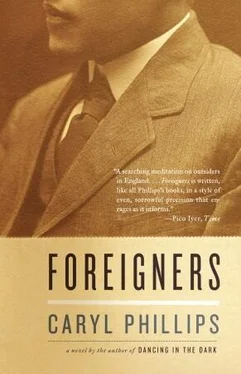Back in 1959, Turpin had bought a run-down café in Russell Street, Leamington Spa, called Harold's Transport Café. The place was in a terrible condition, and most people could not understand why Turpin would want to invest in such a low-class, and decidedly unglamorous, business. However, they knew enough about Turpin to know that whatever reservations they might have about this venture would be ignored by him. What made Turpin's acquisition all the more puzzling, and illogical, was the fact that the property had already been condemned for demolition to make way for a car park. Obviously there was no long-term future to this purchase, but Turpin nevertheless went ahead. He renamed the café for his loyal wife, Gwen, and his mother joined the new Mrs Turpin, the two of them working behind the counter serving mixed grills, bacon sandwiches and mugs of tea to lorry drivers and labourers, while upstairs there was a room to rent out should anybody require lodgings. Although his mother was by now almost blind, she enjoyed the work, but her son soon grew to despise Gwen's Transport Café. The income dribbled in as loose change, and the money did absolutely nothing to alleviate his debts, while the customers were often rude, abrasive, and had stopped by merely in the hope of achieving a glimpse of the once famous fighter who had now fallen on hard times. There were those who wished to arm-wrestle him, or even challenge him to mix it up in a fight, but Turpin generally made his excuses and withdrew to the family's small flat above the café where he would read one of his comic books. The half-dozen plain tables were seldom full, but at least the place kept Gwen and Mrs Turpin busy. Sadly, Turpin's mother aside, the rest of his family did not feel welcome in the café. Their relationship with Gwen was, at best, cool, and should any of her husband's brothers or sisters wander in then it was more than likely that Gwen would charge them for their cup of tea. She sensed that as an 'outsider' from Wales they somehow held her responsible for taking Randy away from his close-knit family, but to her way of thinking they were, at the height of his fame, as happy as anybody else to accept his money and exploit his success. She felt that now, when he had little left, they should be made to pay like everybody else. On the wall of their transport café, Randy and Gwen hung a sign which read: 'That which seldom comes back to him who waits is the money he lends to friends.'
Between his wrestling, the meagre income from the café, and labouring, Turpin managed to earn a living in the early sixties, but he continually worried about his mounting debts and his unpaid bills. He was also tormented with concern about the effect that his predicament was having upon Gwen and his daughters, who formed the loving centre of his life. He worked hard to hide his distress from them, and he was largely successful in maintaining the image of a trouble-free, happy, loving father and husband. However, his anxiety over his debts was compounded by the frustration of knowing that he had foolishly allowed others to take advantage of his generous nature and, to some extent, the present situation was entirely one of his own making. Turpin was well aware of the fact that he was hardly the first boxer to fall into financial hardship once his career had concluded. He knew that his own hero, Joe Louis, was struggling with similar problems in the United States, and that he too had taken up wrestling as a way of paying his bills. Joe Louis' wife, Rose, once commented that 'watching Joe Louis wrestle is just the same as watching the president of the United States wash dishes,' to which her husband replied, 'Well, it ain't stealing.' But these problems were not confined to the United States, for back in Britain there were countless examples of once well-known boxers who were now destitute. However, no British boxer had ever risen to the financial and professional heights of a Randolph Turpin, so his fall from grace was spectacular for others to witness, and for Turpin it was excruciatingly painful to endure. In a state of desperation he made two brief, and somewhat embarrassing, returns to the ring, winning a sixth-round knockout over Eddie Marcano at Wisbech, Norfolk, in March 1963, and then a second-round knockout in Malta in January 1964 over Charles Seguna, but neither opponent could really box, and Turpin collected mere loose change for a fee. Both fights were an exercise in humiliation, but at least Turpin finally acknowledged that he could never again fight seriously, for his eyesight had deteriorated to the point where it would be utter folly to fight even an exhibition bout.
In December 1965, Turpin was invited to New York, with all expenses paid, to be part of the extravagant celebrations at Madison Square Garden marking the retirement of the five-time middleweight champion Sugar Ray Robinson. Together with Carl 'Bobo' Olsen, Jake La Motta, Carmen Basilio, and Gene Fullmer, the other men who Robinson had beaten to claim his five titles, Turpin had the opportunity to enjoy one final night in the spotlight. A photograph of Turpin in the ring with the other fighters that evening tells its own story. While everyone gazes at Robinson, Turpin's face is frozen in a half-smile and he stares into the middle distance. His mind is elsewhere, perhaps wondering why he is even present, and he stands awkwardly to one side as though not really a part of this celebration of boxing history. This is particularly ironic given the fact that Robinson made no secret of his admiration for Turpin the man and the boxer, and went to great lengths to make sure that his old adversary would be present on this special occasion. Later that evening, Turpin joined Sugar Ray Robinson and the other dignitaries, including the mayor of New York City, John Lindsay, and a young Muhammad Ali, at a sit-down dinner at the famous Mamma Leone's restaurant on West 48th Street. This would be Turpin's last glimpse of the glamour and celebrity that a decade earlier had been an integral part of his life.
Late in 1965, a now financially desperate Turpin wrote to Jack Solomons and asked the promoter to help him sell his cherished Lonsdale belt. Turpin hoped that the belt, plus his other trophies, might raise somewhere in the region of £10,000, but Solomons was either unable or unwilling to help. Early in 1966, Turpin turned to another promoter, Alex Griffiths, and he begged Griffiths to help him sell his Lonsdale belt, but although Griffiths tried to attract interested buyers nothing ever came of this effort. The sense of anxiety was palpable in Turpin's actions, and photographs of the former fighter from this period show a man who has visibly aged and whose face is tramlined with streaks of worry. Some thirteen years earlier, in May 1953 as he prepared for the Charles Humez title eliminator fight, the London Illustrated News had run an extensive feature on Randolph Turpin and the opening of his Great Orme complex. It began, 'When Randolph Turpin ducks under the ropes at London's White City stadium on 9 June, he will be the first big-business man to fight for a world title. . The all too frequent story of the ex-champion who dies in poverty, or falls on hard times, is not likely to be applied to Turpin.' Sometime in the spring of 1966, Turpin changed his mind about selling his Lonsdale belt and his boxing trophies, and in a letter to his wife he wrote, 'They are yours. As long as you keep them, you have a part of me. Don't ever sell them.' Those around Turpin, including Gwen, could see a quiet desperation beginning to descend upon the 'Leamington Licker' as he withdrew into introspective silence.
At Randolph Turpin's funeral, the Revd Eugene Haselden spoke loudly and passionately about what he believed was the principal contributory factor to the death of this man who, only a few years earlier, was Britain's most celebrated sporting hero. 'At the height of his career,' he began, 'Randolph was surrounded by those who regarded themselves as friends and well-wishers. But he was deserted by many as he lost his position and money. The fickleness of his friends and the incompetent advice must have weighed so heavily upon him that he was forced to desperation. Randolph was a simple man, a naïve man and he needed friends to protect him from the spongers. To our shame he was let down. The tragedy is not his failure alone, but the failure of the whole society.' At the conclusion of this blunt and unapologetic sermon there was silence inside Leamington Spa's Holy Trinity Church. The newspaper reports claimed that there were nearly 2,000 people present, but the truth is there were maybe 500 people inside the church. However, as the mourners began to spill out into the weak light of this gloomy day their numbers were augmented by passers-by, and by those who had decided to brave the rain and just come and pay their respects. Turpin's grief-stricken family were present, including young Randolph, his son from his first marriage, and many of the friends with whom he had grown up in Leamington Spa made an appearance. The promoter Jack Solomons sent neither words of condolence nor a note of apology for missing the funeral. Shockingly, nobody from the British Boxing Board of Control in London made the trip to the Midlands as one might have reasonably expected for a holder of a Lonsdale belt, and a former British, European, and World boxing champion.
Читать дальше











![Unknown - [Carly Phillips] The Bachelor (The Chandler Brothe(Bookos.org) (1)](/books/174132/unknown-carly-phillips-the-bachelor-the-chandle-thumb.webp)
